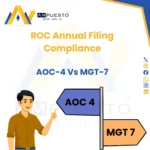Navigating Seafarer Taxes: Your Guide to Smooth Sailing Through Tax Season
Filing income tax returns is a routine task for individuals in India, but when it comes to seafarers, the process can be a bit more intricate. In this guide, we’ll explore the nuances of filing income tax returns for seafarers, with a focus on understanding residential status and the associated tax implications.
Residential Status:
The calculation of income tax is not solely based on earnings; it is also influenced by an individual’s residential status. Residential status is determined by the number of days an individual has spent in India, and it is divided into two main categories:
- Resident
- Non-resident
Under the resident category, there are further distinctions:
- Resident Ordinarily Resident
- Resident But Not Ordinarily Resident
Determining Residential Status:
The Income Tax Act of 1961 outlines specific rules and conditions for determining an individual’s residential status.
- An individual is recognized as a resident if their stay in India during the relevant financial year is 182 days or more, or if their cumulative stay in the preceding four years is 365 days or more, with at least 60 days in the relevant financial year. Notably, for seafarers, only the first condition applies.
- If an individual satisfies the above conditions, further assessment is needed to determine whether they are a Resident Ordinarily Resident (ROR) or a Resident but Not Ordinarily Resident (RNOR).
- A Resident Ordinarily Resident is defined as someone who has been a resident of India in at least 2 out of the 10 immediately preceding years and has a total stay in India of at least 730 days in the 7 immediately preceding years.
- If an individual fails to meet both conditions for ROR, and an individual has stayed in India for 120 days or more but less than 182 days and their income does not exceed 15 lakhs, excluding income earned outside of India, then they are classified as a Resident but Not Ordinarily Resident (RNOR).
- If an individual does not meet any of the conditions for residency, they are considered a Non-Resident.
Calculating Days Spent Outside India:
For seafarers, determining the number of days spent outside India is crucial. The date of leaving stamped on the passport marks the departure from India, and the day of return indicates the end of the stay outside India. For seafarers, the day of joining the ship, as indicated on the Continuous Discharge Certificate (CDC), is considered the day of leaving India, regardless of whether the ship is near Indian shores.
Taxability of Seafarers:
The tax implications for seafarers vary based on their residential status:
- Resident Seafarer: All income, whether foreign or from India, is taxable.
- Not Ordinarily Resident (NOR): Income earned from services on a ship is not taxable, but any income earned in India is subject to taxation.
- Non-Resident: Similar to NOR, income/salary earned from services is not taxable, but any income earned in India is subject to taxation.
It’s important to clarify that these conditions specifically apply to seafarers engaged in work on foreign ships. If a seafarer is working on an Indian ship, their salary from the ship becomes taxable regardless of their residential status, whether they are a resident or a non-resident.
According to the guidelines outlined in CBDT circular no. 13/2017, certain conditions must be met for the exemption of salary from income tax. The exemption applies when:
- The salary is accrued or earned outside India.
- The salary is received in an NRE (Non-Resident External) bank account.
- The seafarer falls under the NRE (Non-Resident Indian) or NOR (Not Ordinarily Resident) category.
- The individual is engaged in employment on a foreign ship.
Only when all these criteria are satisfied will the salary be exempted from income tax as per the specified circular.
Tax Implications for NRIs:
For Non-Resident Indians (NRIs), certain incomes are taxable, while others are exempt: Taxable Income for NRIs:
- Income from house property situated in India
- Capital gains on the transfer of assets
- Income from fixed deposits or savings bank accounts
- Any other income from India
Exempt Income for NRIs:
- Income/salary earned from outside India
- Interest earned from NRE and FCNR accounts (interest earned from NRO accounts is taxable)









